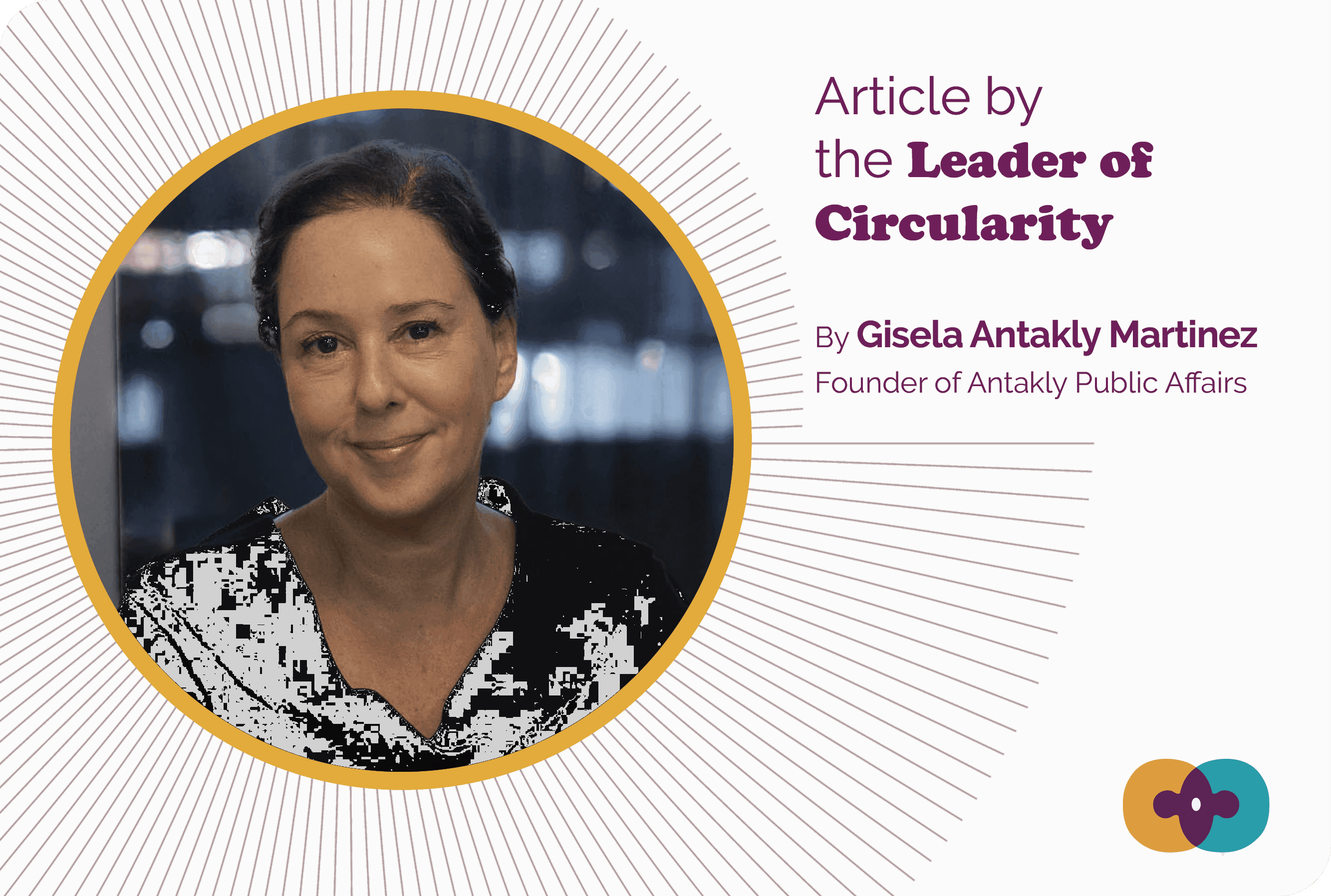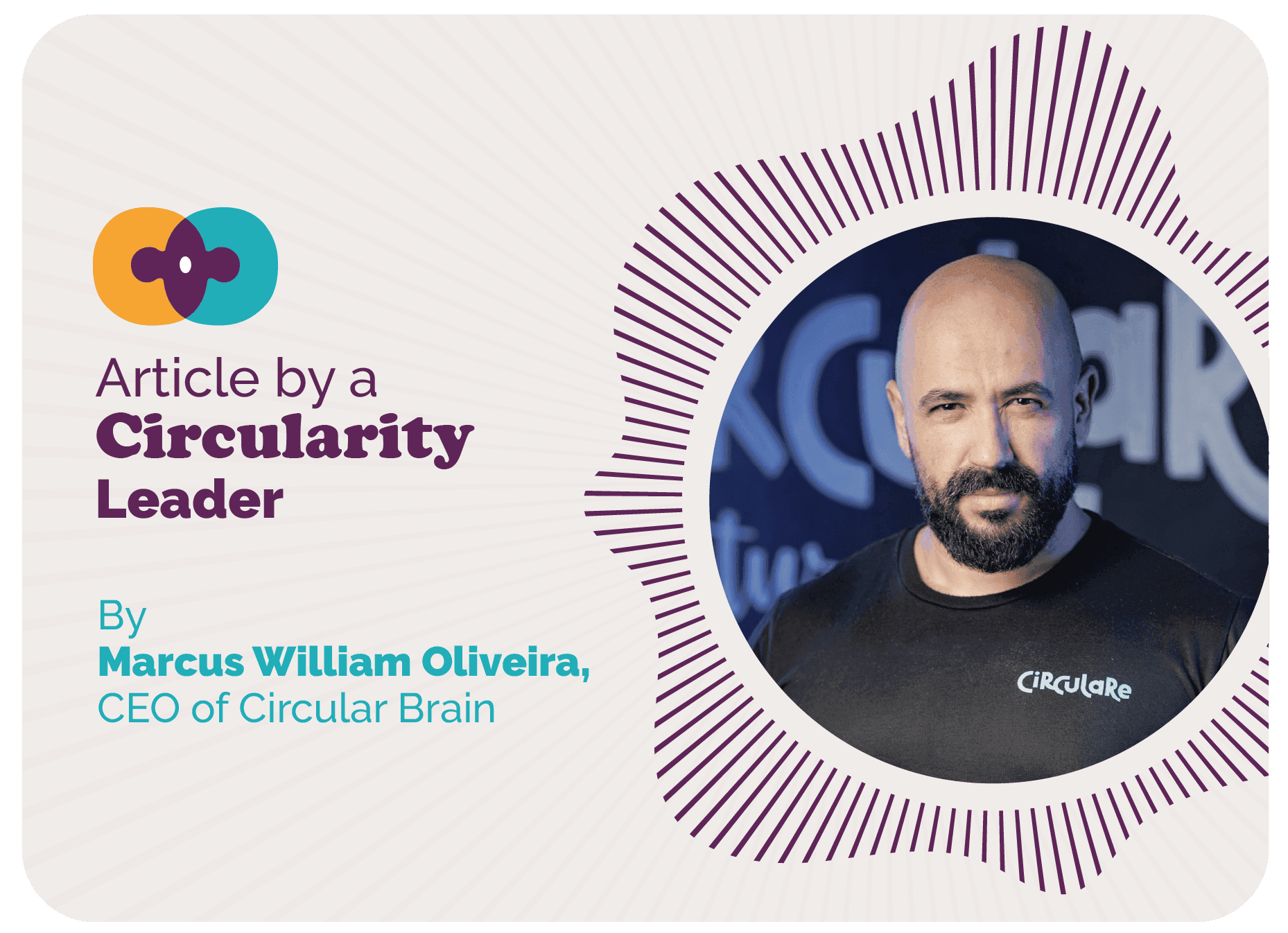
08/04/2025
Recillusion: the illusion of recycling and its impacts in Brazil
By Gisela Antakly Martinez
Antakly Public Affairs, partner of the Circular Movement*
The English language has an interesting feature: the ability to combine words to create new concepts. Terms like wishcycling (the incorrect disposal of materials into recycling without being sure they can actually be reused), mansplaining (when a man explains something to a woman in a condescending manner), and doomscrolling (the compulsive consumption of negative news) illustrate this linguistic flexibility well. These neologisms condense complex ideas into terms that are easy to understand and share.
Inspired by this model, we can try a similar exercise in Portuguese. If wishcycling conveys the illusion of recycling, we might coin an equivalent: recillusion— the belief that all material placed in the recycling bin will actually be recycled. This behavior has direct consequences on how we deal with waste and on the effectiveness of recycling itself.
According to the “Panorama of Solid Waste in Brazil 2024” from the Brazilian Association of Waste and Environment (ABREMA), the recycling rate in the country reached 8% in 2023, with 6.7 million tons of recyclable waste—such as plastic, glass, metals, and cardboard—being processed. Of this total, informal waste pickers were responsible for approximately two-thirds of the recycled materials, while municipal selective collection contributed the remaining third.
A lack of knowledge about which materials are recyclable contributes to the spread of recillusion. Many consumers are unaware that some types of plastic are highly recyclable, while other packaging, such as multilayered or metalized materials, pose greater challenges in the recycling process. This lack of information hinders conscious decision-making at the point of purchase, negatively impacting the recycling cycle.
Although plastic is often vilified, it has significant recycling potential. According to a report from PICPlast — the Incentive Plan for the Plastic Chain, developed by the Brazilian Association of the Plastics Industry (ABIPLAST), the plastic recycling rate in Brazil reached 20.6% in 2023. However, this percentage is still insufficient given the volume of plastic waste generated. The lack of information leads consumers to choose alternatives that are not always more sustainable or recyclable.
Once we understand the realities and limitations of recycling, we become able to demand packaging from brands that are truly designed for a circular economy. This pressure for practical solutions influences business decisions, encouraging the review of materials, formats, and production processes, and generating alternatives that facilitate circularity. Through this dynamic—attentive consumers interacting with companies willing to meet more informed demands—the market can evolve toward truly sustainable solutions.
Investing in environmental education that clarifies which materials are recyclable and how proper disposal should be done is, without a doubt, a vital step. But expanding and improving selective collection and recycling systems is equally fundamental. The National Solid Waste Policy (PNRS), established by Law No. 12.305/2010, sets out important guidelines for waste management in Brazil, but its full implementation still faces many challenges.
Active participation from society is crucial in building effective public policies. On March 19, the Ministry of Development, Industry, Trade and Services (MDIC) closed a public consultation for the formulation of the National Circular Economy Plan. With an impressive 1,627 contributions received, this initiative is expected to guide strategic actions in the transition toward a more sustainable and innovative economic model, with circular production redesign as one of its central pillars.
Recillusion shows how misinformation affects individual habits and weakens demands for infrastructure and efficient public policies. Becoming better informed and more demanding about waste management is a matter of survival.
[FEATURE ARTICLE WITH A CIRCULARITY LEADER]
*Gisela Antakly Martinez is the owner of Antakly Public Affairs, a partner of the Circular Movement. She is a specialist in government relations, reputation protection, and crisis management. She has worked for the São Paulo State Government and in communications firms. She serves on the board of Sigalei and is a member of the associations Mulheres em Relgov and Infra Women Brazil. She was also a board member at IRELGOV.
*This text was automatically translated with the help of artificial intelligence and reviewed. Still, there may be slight differences compared to the original version in Portuguese.

